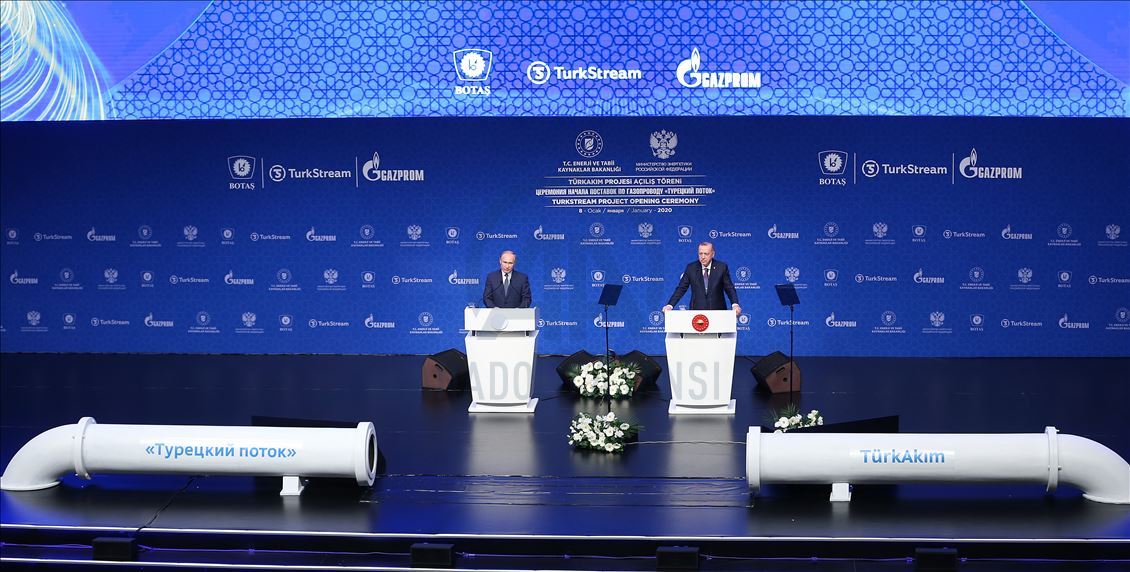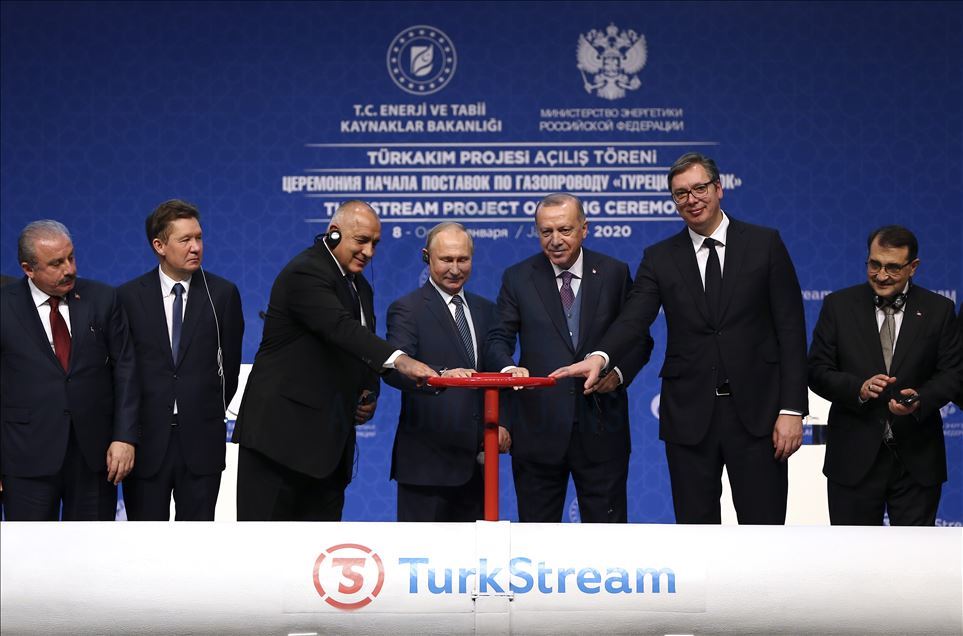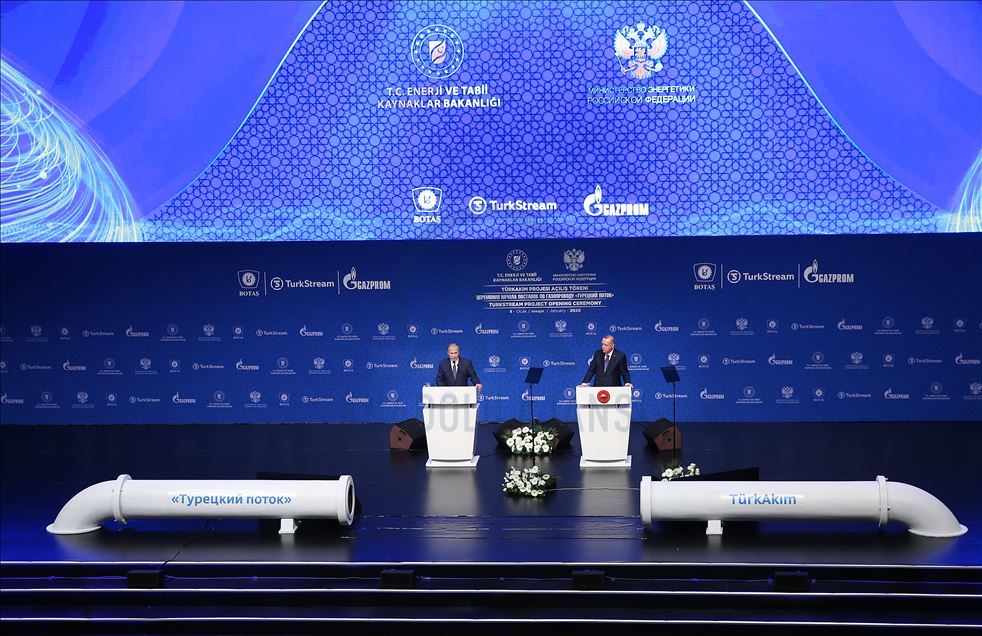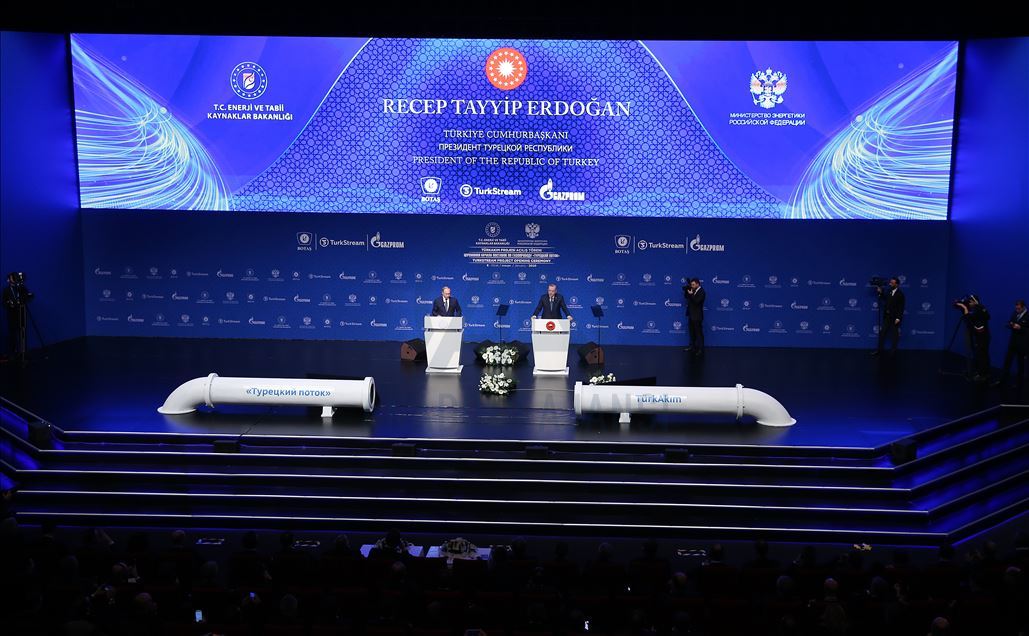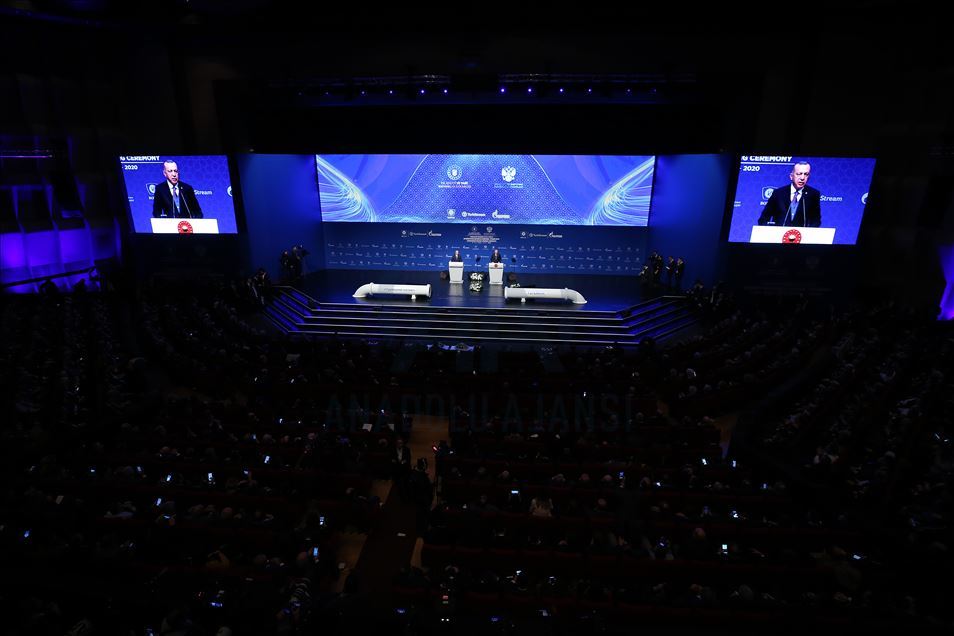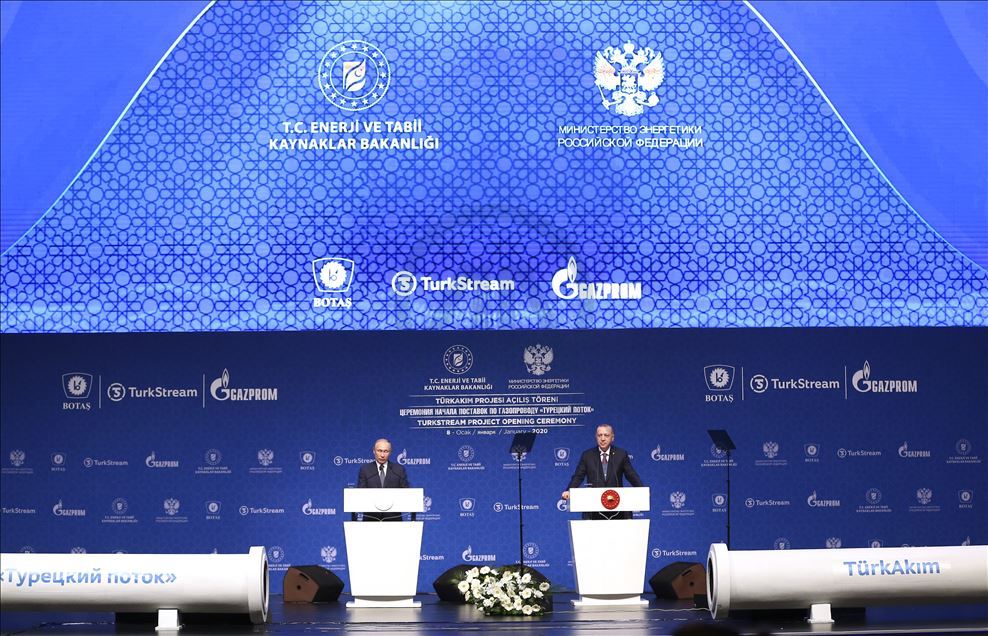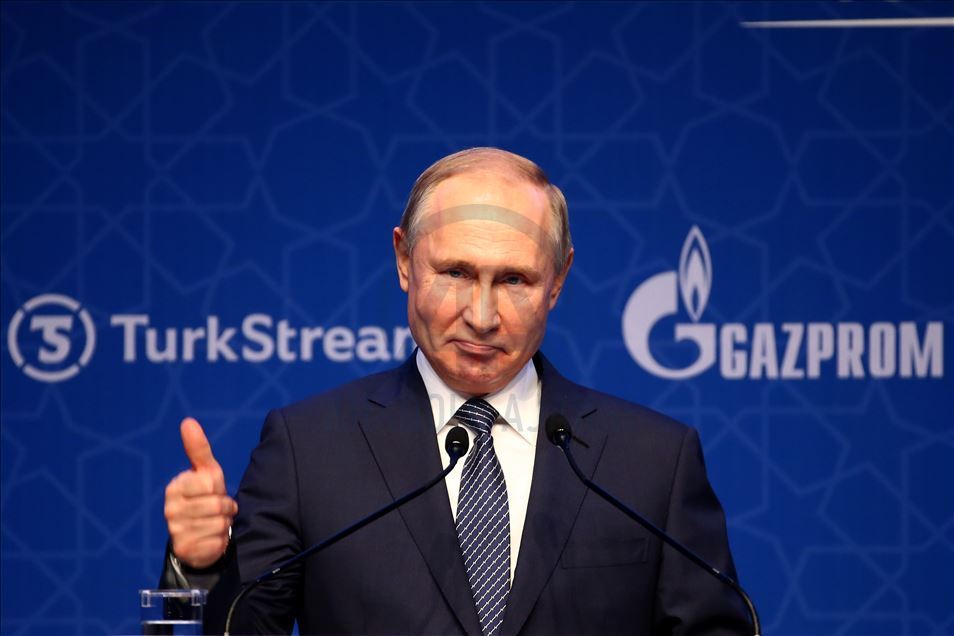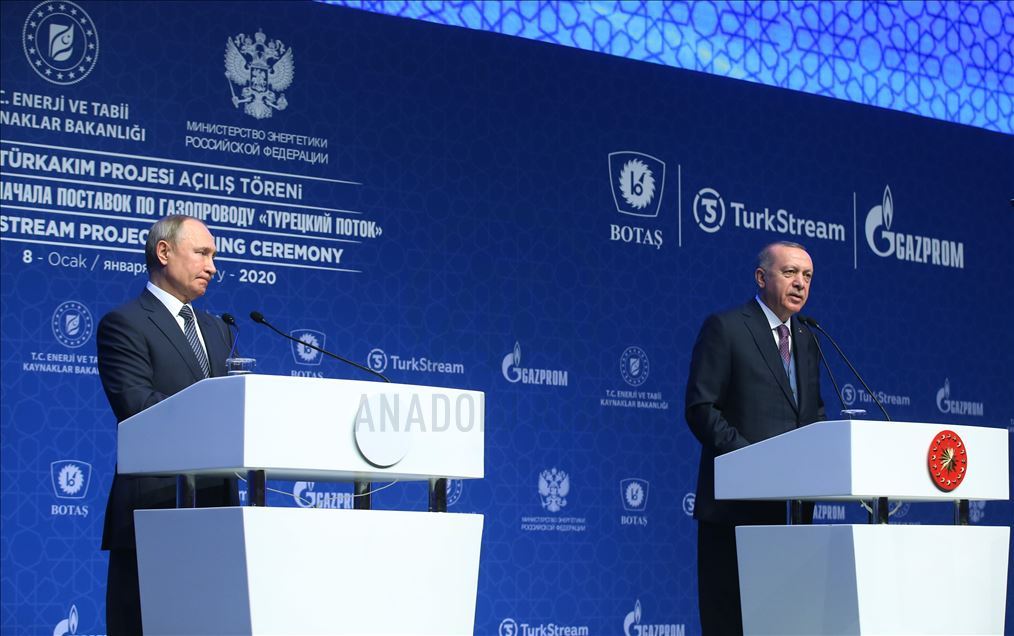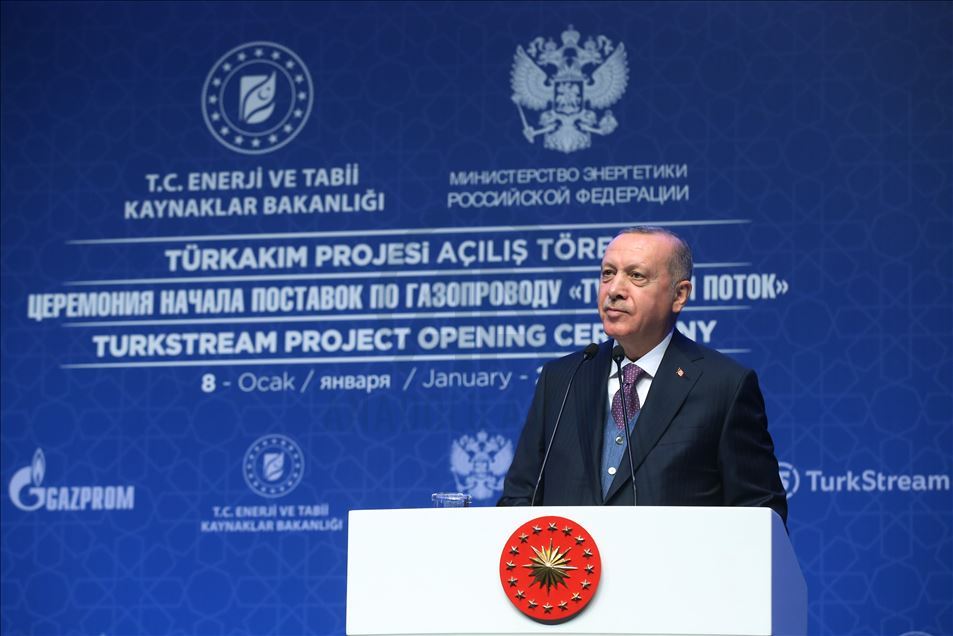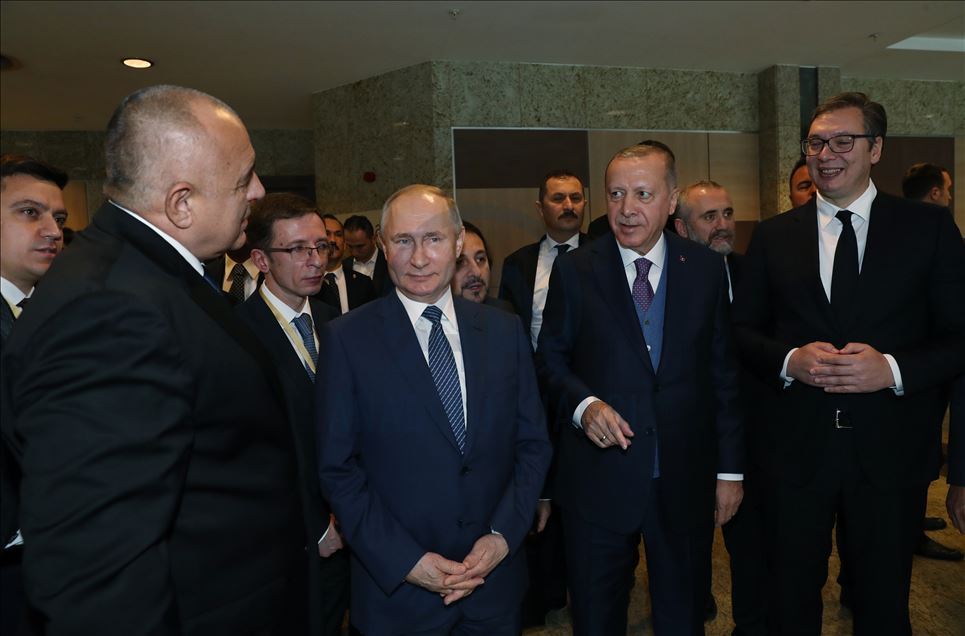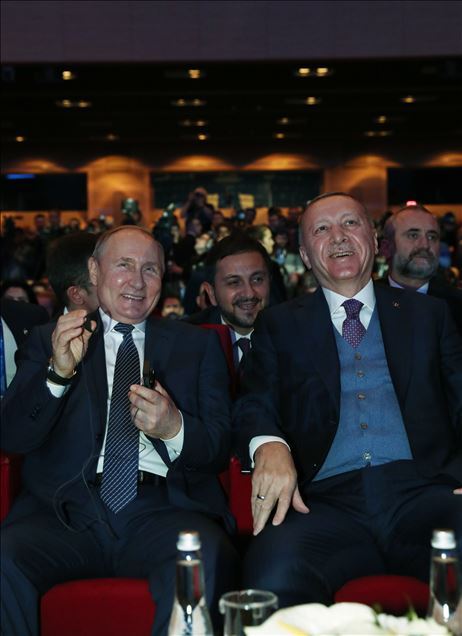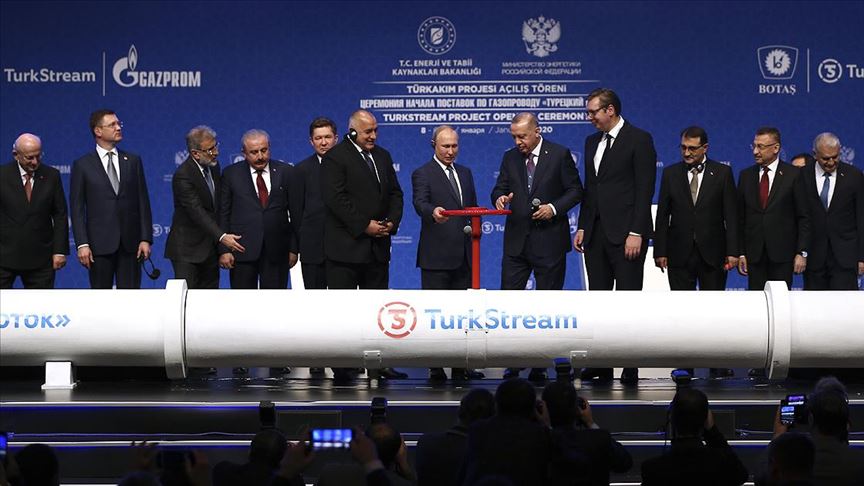
ISTANBUL
Turkish and Russian presidents hailed Wednesday TurkStream natural gas pipeline project, saying the cooperation between two countries has been improving in all fields "despite efforts at obstruction."
Speaking at the inauguration ceremony of the TurkStream project in Istanbul, Recep Tayyip Erdogan termed the project “historic” in terms of bilateral ties and cooperation in the energy field.

Russian President Vladimir Putin was also in attendance at the launch ceremony.
The TurkStream project consists of two lines with a total capacity of 31.5 billion cubic meters (bcm) per year. The first line will carry 15.75 bcm of Russian gas to Turkish consumers every year, and the second line will carry another 15.75 bcm from Russia to Europe via Turkey.
BOTAS built the first line that will connect to Turkey’s existing gas grid, while the second line, to be operated by a Gazprom-BOTAS joint venture, will stretch to the Turkish-European border in Turkey's Thrace region.

Erdogan said the TurkStream project was concluded successfully as planned, and added that the bilateral trade with Russia has been regularly improving.
Also addressing the launch ceremony, Putin said the Russian-Turkish cooperation has been developing in all fields despite efforts at obstruction.
"I am sure that in the future Russia and Turkey will implement many more mutually beneficial projects both in energy and other areas," he said.
There are tendencies to raise tensions in the region but Turkey and Russia aim at the opposite, the Russian president stressed.
Turkey did not allow divergence in opinions with Russia to derail common interests, Erdogan also said.
Eastern Mediterranean
During his speech, Erdogan ruled out any project in the Eastern Mediterranean excluding Turkey.
"There is no chance of realizing any project in the Eastern Mediterranean that excludes our country […]," he said.
Last week, Greece, Israel, and the Greek Cypriot administration signed an agreement for the EastMed project to build a 1,900-kilometer (1,180-mile) natural gas pipeline that will run from Israel through Southern Cyprus, Crete, Greece and ultimately to Italy.
Turkey is a guarantor nation for the Turkish Republic of Northern Cyprus (TRNC) and has consistently contested the Greek Cypriot administration's unilateral drilling in the Eastern Mediterranean, asserting that the TRNC also has rights to the resources in the area.
In 1974, following a coup aimed at the annexation of Cyprus by Greece, Ankara had to intervene as a guarantor power. In 1983, the TRNC was founded.
The decades since have seen several attempts to resolve the Cyprus dispute, all ending in failure. The latest, held with the participation of the guarantor countries -- Turkey, Greece and the U.K. -- came to an end without any progress in 2017 in Switzerland.
Exemplary cooperation
For his part, Russian President Vladimir Putin said Moscow and Ankara could together accomplish the most complex and ambitious tasks for the common good.
Vladimir Putin underlined that Moscow and Ankara demonstrated exemplary cooperation amid rising tensions in the region.
He added that attempts to hinder the implementation of the joint energy project had failed, with the Russian-Turkish partnership yielding "significant, tangible results".
"Cooperation between Russia and Turkey is steadily developing in almost all areas, despite the difficult situation in the world and the attempts of a number of international players to prevent the expansion of mutually beneficial cooperation between our countries, the work is underway," he said.
He noted that the deep sea TurkStream pipeline had been constructed at a record speed of six kilometers (nearly four miles) per day, adding that Russia and Turkey would continue to implement projects beneficial for both countries, as well as Europe and the world.
US-Iran tension
Speaking on climbing tensions between Turkey's neighboring Iran and ally U.S., Erdogan said Ankara never desired the strain between the two countries to rise to the current level.
"Using every means available, Turkey will not allow the region to be drowned in blood and tears," Erdogan said.
He added that Turkey sought to "ease tension in the region by using all the channels of diplomacy."
The Turkish president highlighted that the safety of Iraqi Turkmens was "as important for Turkey as its own citizens' security."
Early on Friday, Qasem Soleimani, the head of Iran's Islamic Revolutionary Guards Corps' (IRGC) elite Quds Force, was killed in a U.S. drone strike in Baghdad.
His death marked a dramatic escalation in tensions between the U.S. and Iran, which have often been at a fever pitch since President Donald Trump chose in 2018 to unilaterally withdraw Washington from a 2015 nuclear pact world powers struck with Tehran.
Iranian Supreme Leader Ali Khamenei, who bestowed the country's highest honor on Soleimani last year, vowed "severe retaliation" in response to his killing.
Early Wednesday, Iran's IRGC launched more than a dozen ballistic missiles against U.S. military and coalition forces in Iraq.
Anadolu Agency website contains only a portion of the news stories offered to subscribers in the AA News Broadcasting System (HAS), and in summarized form. Please contact us for subscription options.

